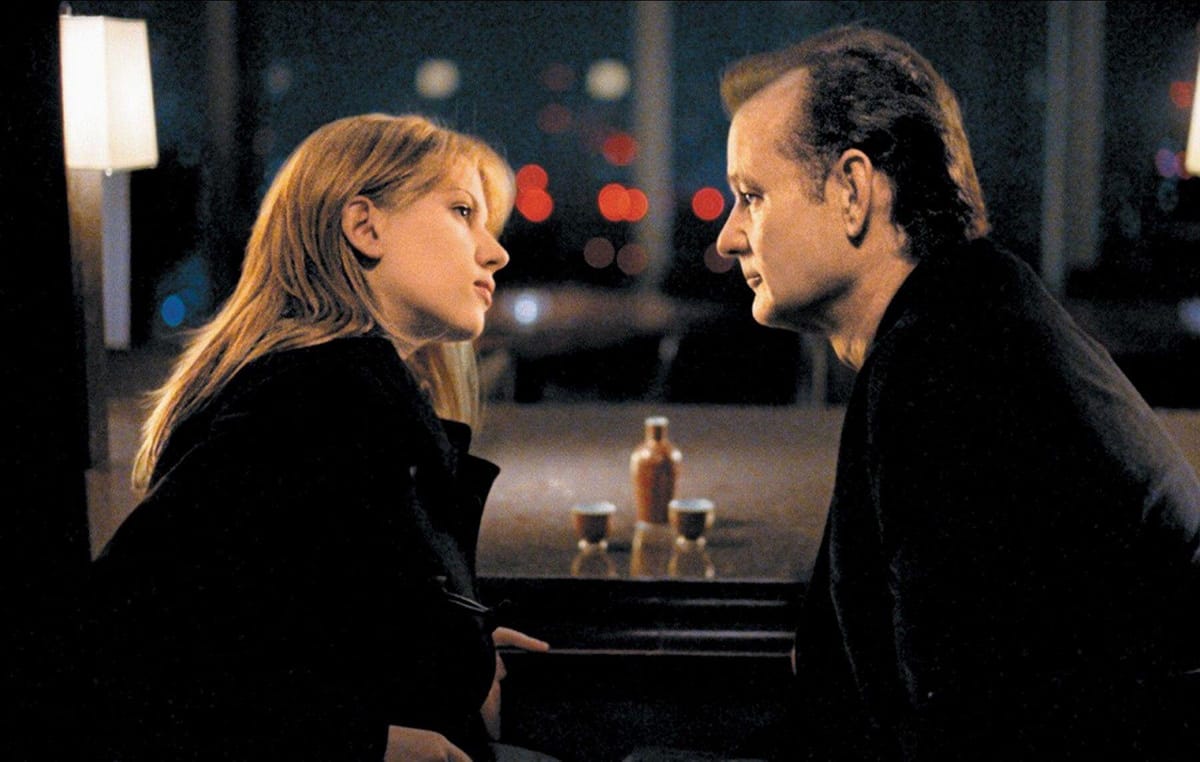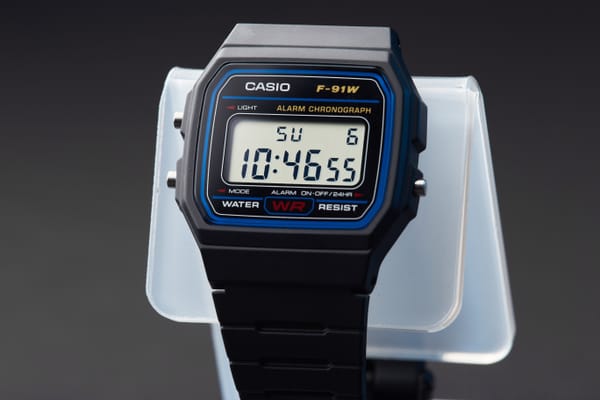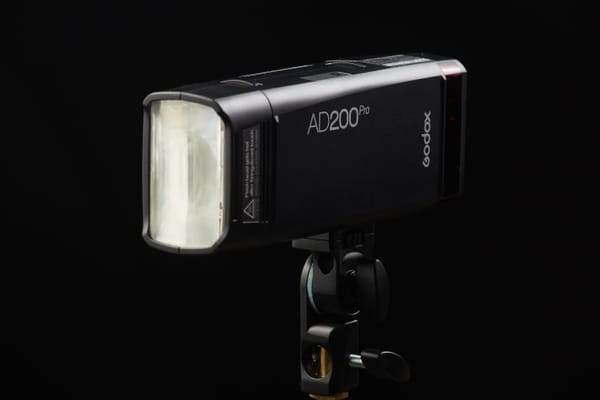A Movie Review Of Sofia Coppola's Lost In Translation
What makes Lost in Translation truly special is how it captures the beautiful sadness of making a fleeting connection in life. It plays in the realm of moral ambiguity, and it's within this structure that the film elegantly combines elements of romance and comedy.

Decaf Journal is reader-supported. When you buy links through our site, we may earn an affiliate commission.
Movies like Lost in Translation don't really get made anymore. Released in 2003, it was Sofia Coppola's second feature film in which she wrote and directed. Shot on a shoestring budget by Hollywood standards, the $4 million film grossed $119 million worldwide making it a massive success. It would later go on to win the Academy Award for Best Original Screenplay, and was nominated for Best Picture, Best Director, and Best Actor for Bill Murray's performance. Achieving the perfect balance between independent art-house film and commercial appeal, Lost in Translation became my favourite romance film long before I'd ever found myself in a serious relationship.
Artists
- Director: Sofia Coppola
- Cinematographer: Lance Acord
- Editor: Steven Soderbergh
Technical Specifications
- Cameras: Aaton 35-III, Arriflex 435 Xtreme, Moviecam Compact
- Lenses: Zeiss Super Speed and Angenieux Optimo Lenses
- Film Stocks: Kodak Vision 500T 5263, Kodak Vision 320T 5277
Bob Harris (played by Bill Murray) is a middle aged famous actor who finds himself in Tokyo, Japan to do a commercial for Suntory whiskey. Jet lagged as can be, he's only there for the money and not interested in staying there any longer than necessary. Bob's wife keeps in touch with him by sending messages via fax machine to his hotel room at all hours of the night. Her cold memos nag him about of all the things he's neglected at home, and are a constant reminder to him of the monotony of married life. During the day, Bob's film and photo shoots are awkward at best because of the language barrier with native Japanese speakers. At the same time, he appears to be having something of a mid-life crisis in the background of it all.
Staying at the same hotel is a recently married young woman named Charlotte (played by Scarlett Johansson), who has decided to accompany her eccentric photographer husband named John (played by Giovanni Ribisi) on assignment to shoot a famous Japanese band. John is always busy with work and doesn't pay much attention to Charlotte. In turn, Charlotte is emotionally distressed, feels lost in life, and doesn't know what to do with herself. While working through the unanticipated side effects of culture shock, she explores the megacity alone while her husband works. Charlotte is overwhelmed with the busyness and large crowds in Tokyo, though she's fascinated by Japanese culture and tries to understand it.
Bob and Charlotte see each other for the first time in a crowded elevator in the hotel. They politely smile at each other but don't say anything. They later catch a glimpse of one another at the hotel bar where she instructs the waiter to send a drink over to him. He smiles at her from across the room and leaves. Another night at the hotel bar, they are seated next to each other by chance and break the ice with pleasant small talk. He casually mentions his dissatisfaction with his life, his wife, and forgetting his son's birthday. She explains that she's been married two years, and he mentions that he's been married for 25. He makes her laugh with his dry but warm sense of humour, and they both talk about how they can't sleep at night.
The next day, Charlotte's husband John runs into an old female movie star friend named Kelly (Anna Faris) and they hit it off, without him considering Charlotte's feelings as she stands there in dismay. Kelly is loud, lacks substance, and obsesses over superficial nonsense, much to Charlotte's disgust who is sensitive and philosophical. John and Kelly meet up for drinks later and Charlotte feels like the third wheel. It's apparent that John loves Charlotte, but doesn't give her the attention that she truly desires. As a result, she feels the sting of loneliness in the relationship. After John leaves the hotel on his photo assignment, Charlotte runs into Bob at the hotel swimming pool and neither of them are able to hide their sense of happiness. Bob is disarming with his words and puts Charlotte at ease by making her laugh. It becomes clear through their playful banter that they're well matched, so Charlotte invites Bob out to go meet some of her friends later and he agrees. Thus begins an unforgettable experience exploring Tokyo nightlife together, along with a series of fleeting moments in the ensuing days.
The cinematography in Lost in Translation is striking in its understated beauty. Director of Photography, Lance Acord possesses a masterful eye for quiet compositions and he has an enhanced sensitivity to the most beautiful characteristics of natural light. His minimalist approach to photography doesn't draw attention to itself, but instead focuses on the delicate subtleties of available light and the often overlooked details of life. The camera divides its time between static artistic establishing shots and carefully choreographed handheld camera movements that humanize the story while also providing an immersive encounter for the audience.
The majority of scenes are lit quite sparingly by favouring practical real world light sources over perfection, which lends a refreshing sense of honesty to the film. Lost in Translation faithfully captures the magic and wonder of Japan's largest city, as breathtaking shots of the Tokyo skyline serve as the backdrop for many scenes in the hotel. Lance Acord is discerning in terms of how the city adds a richness to the movie to the point where it almost becomes its own character. Throughout the film, Bob and Charlotte both experience the never ending lights and immense signage of Tokyo at night from the backseat of taxi cabs as the camera thoughtfully frames their tour of vibrant Japanese nightlife from the perspective of an outsider.
One of the most memorable aspects of Lost in Translation is how it examines the feeling of absurdity when being a foreigner in a different culture. The film could be misunderstood as racist or culturally insensitive at first glance, but this would be a misstep. Rather, this is honestly how many foreigners feel when immersed into a new culture, and I can completely relate from my experience of living in China for a year. The story accurately portrays the frustration of not speaking the local language and the resulting feelings of isolation from society. Bob (Bill Murray) takes it in stride however, and enjoys the interactions with the locals as he uses his dry delivery and quick wit to make light of the confusing situations he finds himself in. The appeal of these scenes is in how Bill Murray recognize's the light hearted humour in our societal differences, and his honest reactions to what he encounters for the first time is hilarious.
Sofia Coppola wrote the film with both Bill Murray and Scarlett Johansson in mind. She's been quoted as saying that she wouldn't have done the film without Bill Murray's involvement, though both actors absolutely shine here. For Bill Murray's part, he approached Lost in Translation from an angle that is well outside of what he's become known for. He made Bob Harris real to audiences with his subdued portrayal of an actor past his prime and trying to make sense of life. Murray exercised restraint in such an exquisite fashion with regards to his acting that he took home the Oscar for Best Actor. A profound example of this is when Murray's character Bob explains to Charlotte how having children can change the marriage dynamic, and reflects on the happier times of the past when it was just him and his wife:
It's the most terrifying day of your life, the day the first one is born. Your life, as you know it, is gone. Never to return. But they learn how to walk, and they learn how to talk, and you want to be with them. And they turn out to be the most delightful people you will ever meet in your life.
Not to be outdone, although Scarlett Johansson was only 17 at the time of production, she delivered a mature and refined performance of someone much more experienced, proving that age isn't a factor in artistic genius. Her depiction of Charlotte is convincing as an introspective wanderer trying to find her place in the world. She's nuanced in her range of tonality from genuine despair when she's alone, to her charming quips when she's engaged in conversation with Bob. In turn, Johansson provides the perfect counterbalance to Bill Murray and it shows in their on-screen chemistry.
What makes Lost in Translation truly special is how it captures the beautiful sadness of making a fleeting connection in life. It plays in the realm of moral ambiguity as it looks at what happens when married people meet an enchanting person but know they shouldn't act on their feelings. It's within this structure that the film elegantly combines elements of romance and comedy, while distinctly avoiding the romantic comedy genre. This makes for a far more compelling narrative that also feels a bit more human. There's nothing else quite like it, which is why the movie still has a cult following 20 years after its release. Sofia Coppola curated the perfect team for a story that feels real to the touch, with themes that remain timeless. There's just something beautiful about the short-lived enjoyment and sadness of it all.





